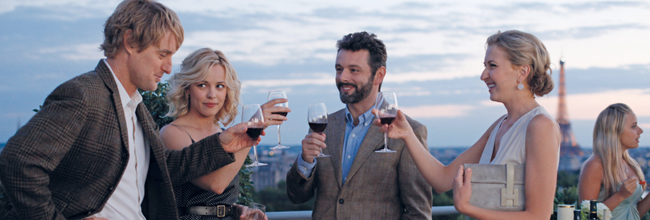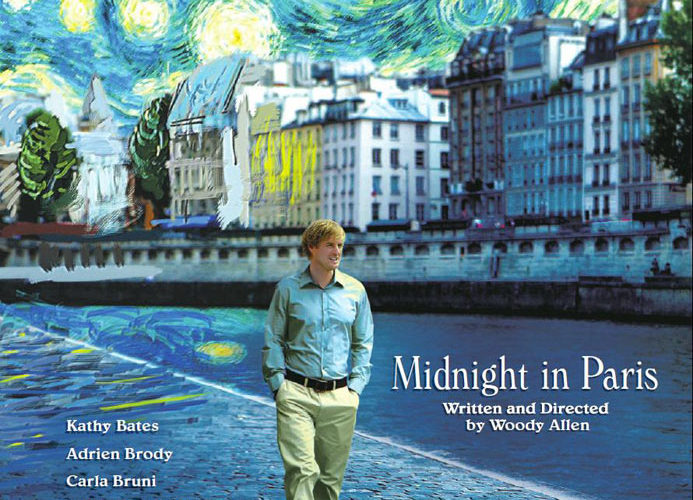Woody Allen at his best is always a glory to behold. The man at his so-so, which applies to plenty of his more recent films, is still far more impressive and enjoyable than most directors working today. The icon’s latest film, Midnight in Paris, represents his greatest strengths as both a writer and a director. It’s the best type of Woody Allen film: one that actually has something to say.
Allen has made a love letter to Paris, a deconstruction of what nostalgia means, and extends a swift and hilarious punch to the face of pretension and pseudo intellectuals. Allen’s past few films have felt obvious in their messages. He took potentially interesting themes, but presented them in underwhelming ways. Midnight in Paris, in both structure and performances, is simple. But underneath that simplicity lie interesting statements, said in an engaging manner.
The film’s lead, Gil (Owen Wilson), is a successful hack of a screenwriter taking a crack at being a novelist. Unfortunately, he has writer’s block and lacks inspiration, something his soon-to-be wife Inez (Rachel McAdams) surely won’t provide him. Paris, on the other hand, does. Not only do the lush and heaven-like locations help Gil, but like most aspiring novelists, so does time travel. Yes, that’s right, a Woody Allen film with time travel.
Time travel has never been more simple than how Allen presents it. At night time and on a specific street, Gil gets picked up at the strike of midnight to bring him back in time. The cars take him to the era he feels the most nostalgic for: the 1920s. There he gets to hangout and drink with the likes of the hilarious and scene stealing Hemingway and F. Scott Fitzgerald (Tom Hiddleston). Gil finds everything he wants and loves there, including a muse by the name of Adriana (played elegantly by Marion Cotillard). With this magical event, Gil finally gets what he needs and finds his passion to make his book possibly work.

While this concept could have been worn down easily, with far too many famous writers showing up (which it comes dangerously close to doing), Allen has just enough restraint to keep the film focused. The time travel represents nostalgia, which as Gil learns, is different for everyone. But one thing Allen makes sure to point out: nostalgia is important and there’s nothing wrong with having an appreciation of the past, just as long as you’re not stuck living in it.
That is Gil’s journey and revelation in a nutshell, but it’s done with subtlety and with a wonderful sense of fun. Owen Wilson is rarely this charming in a role. Wilson impresses every now again, never doing particularly bad work, but here he reminds us that he has greatness in him. He makes Gil charmingly ambitious, a bit of a dreamer, and while he’s self-aware and honest like most Allen lead archetypes, he puts his own spin on it. Gil is a guy comfortable in his own skin and not a total neurotic nerd — he is engaged to a woman played by Rachel McAdams, after all. He’s the type of character that is always condescending and secretly rolling his eyes, but even when he skirts towards being mean-spirited, Wilson always finds a way to keep him likable and relatable.
Likable is the best way to describe Midnight in Paris. A film with such charm is rare, especially during the summertime. The third act may lose a tad bit of steam, but the excellent ensemble keeps it all still worthwhile and engaging. Funny, poignant, and clever, this is a Woody Allen we can all enjoy and embrace.
Midnight in Paris is now in limited release and expanding via Sony Pictures Classics.


